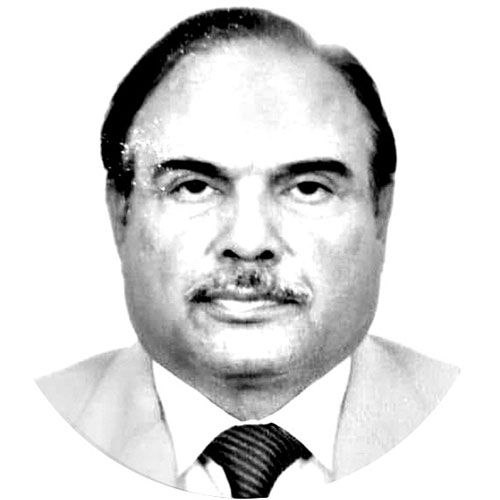Kanwar Muhammad Dilshad
DEVELOPMENT on reforms in bureaucracy aiming at a depoliticized and corruption free bureaucratic structure would be discussed later on. Before that, it is pertinent to mention a grim reality that through calculated Machiavellian manoeuvres bureaucracy has misguided the government towards a wrong direction by keeping her ignorant of core issues and their preliminary complications. So far as reforms in bureaucracy are concerned, the government in this regard has enforced “Civil Service Efficiency and Discipline Rules 2020”. The PM gave the consent to these rules and the Establishment Division duly notified them on 11 December. As per these rules, a government servant would be decried a corrupt officer on account of alleged non-conformity between his assets and income and would be punished with recovery, removal from service or compulsory retirement from his job in case his misappropriation is proved.
In case of his inability to prove the alleged charge against him, the authority would announce its verdict within thirty days. As the misconduct has been duly interpreted through a thirteen-page document based upon an SRO released by Establishment Division. Misconduct also means using political influence in appointment, promotion, transfer, retirement or any other service matter. Doing plea bargain with any agency after committing corruption also comes under the ambit of misconduct. A disciplinary proceeding against any civil servant shall immediately be conducted in case there would be a clear difference between his apparent means of income and his own property or the properties of his dependent family members; or their way of living does not match with their means of income; or he is allegedly found to be involved in terrorist or dubious activities or he is found to disclose any officially confidential matter to any unauthorized person. In all these situations he would be liable for a disciplinary action.
The SRO also delineates the punishment. The minor penalties include, warning, stoppage of the annual promotion, freezing annual promotion for a certain period at the maximum for three years, degradation from the existing scale and revocation of the due promotion at the maximum for three years. The major penalties include, in case of financial embezzlement by a government servant, recovery from him as per financial rules, downgrading from existing scale, forced retirement or suspension or may be sent on forced leave. Salary and other allowances would be given as per Rule 53 during suspension period. Nonetheless, the accused shall be informed with the basis of due proceedings against him. The case of inquiry against the officer shall clearly bring forth the justification of inquiry in black and white including the issuance of show cause notices. He would be given a minimum ten-day period for submitting his reply. In case the accused would not prove him innocent against the charges during the said period then the authority would announce its verdict within 30 days except where the authority rests with the PM or President.
The inquiry officer would be provided with the record within seven days against any civil servant who would be the object of that inquiry. The authority can extend the period only for 10 days. It’s mandatory that the inquiry officer must be senior to the accused civil servant and the justification for inquiry should be clear. Inquiry procedure may be conducted through a single inquiry officer or an inquiry committee also. Inquiry officer or any member of the inquiry committee may also be changed on account of any reason. Witnesses’ statements may be recorded and cross examination may also be conducted on the witnesses of both the parties. If the accused officer would not prove himself innocent against the charge then the inquiry officer would be authorized to conduct one sided action.
An Enquiry officer or inquiry committee would hold the proceedings on a daily basis and would provide for the reasons in black and white in case of postponement of the same but not for more than seven days. In case the inquiry officer or the inquiry committee finds the accused is affecting the inquiry procedure then he may be issued with a warning. The committee may adopt its course as it may deem fit in order to meet the standards of justice if it finds that the accused is still affecting the procedure despite warning issued to him. Delay in the proceedings on medical reasons would be recommended by an authorized registered medical officer. Inquiry officer or committee would dispose of the case within sixty days. Inquiry officer would be authorized to call any person and record his statement during the inquiry proceeding. He would also be authorized to constitute a commission for evaluating the witnesses’ statements.
A civil servant accused of any charge at the time of his joining the mandatory training course would be permitted to complete the same. This facility would remain the same in case of availing of any scholarship. If a civil servant would be on leave then the authority would call him back after cancellation of that leave provided that he would also be provided with a chance of personal hearing. In case of deputation of any officer the department of deputation in case of any charge against that officer would formulate a charge sheet against him and send it to the parent department. The Establishment Division would communicate to the Chief Secretary to conduct a Fact Finding Inquiry to be completed within two months against any officer of Pakistan service appointed in any province. In case of any disciplinary proceedings against any Chief Secretary, the Establishment Division would carry on proceedings with the prior approval of the PM. Every civil servant awarded with the penalty would have the right of appeal against the same, except in that case when the penalty is awarded through the President. Nevertheless, only a review appeal may be filed in this case.
—The writer is former Federal Secretary Election Commission of Pakistan and currently Chairman National Democratic Foundation.










